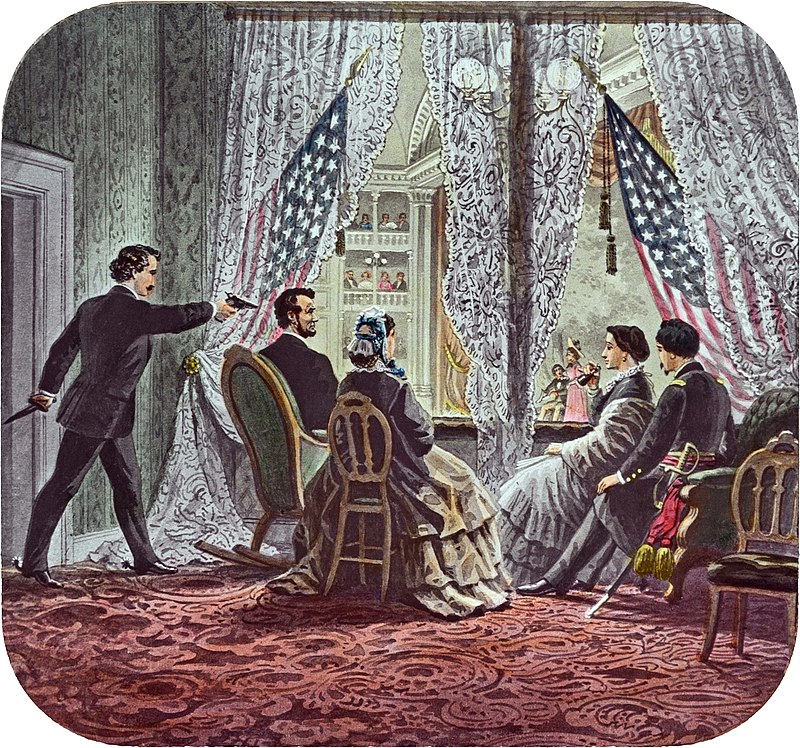On April 14, 1865, history was made at Ford’s Theatre in Washington, D.C., when President Abraham Lincoln was assassinated by John Wilkes Booth, a man motivated by Confederate sympathies. As the Civil War was nearing its end, Lincoln’s assassination derailed any plans for peaceful reconciliation, plunging the nation into a new period of uncertainty.
Residents of Washington participated in spring festivities as they celebrated the Confederate surrender the night before. Seeking a brief escape from the responsibilities of war, President Abraham Lincoln attended a performance of the comedy *Our American Cousin* at Ford’s Theatre with his wife, Mary Todd Lincoln, and their guests, Major Henry Rathbone and Clara Harris. Unbeknownst to them, Booth, a famous actor and Southern loyalist, had meticulously planned his attack. At exactly 10:15 PM, Booth accessed the presidential box, where he secured the door and delivered a fatal gunshot into Lincoln’s skull from inches away. The theater heard screams while Booth produced a dagger to cut Rathbone before leaping onto the stage where he yelled, “Sic semper tyrannis!” (Thus always to tyrants) before escaping into darkness.
Doctors in the Petersen House applied emergency medical treatment to Lincoln after he sustained fatal injuries during his attack. He remained in a state of unconsciousness for nine intense hours, which led to his death at 7:22 AM on April 15. His passing became known swiftly throughout the nation, thus bringing darkness to the country. Thousands of mourners lined railroad tracks to honor Lincoln as his funeral train delivered him back to Springfield, Illinois, where churches conducted solemn services and local businesses remained closed.
The tragic assassination of President Lincoln undermined his leadership and derailed his vision for a compassionate Reconstruction recovery process. Andrew Johnson, who succeeded Lincoln, lacked the political skill and moral insight that characterized Lincoln’s leadership. This resulted in strained relations with Congress and harsher conditions imposed on the defeated South. Through Booth’s violent act, Lincoln transformed into a tragic hero, cementing his status as one of history’s most significant symbols of freedom.

